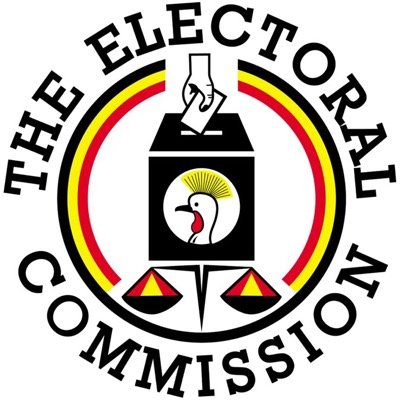- Home
- National Youth Council Committee Elections 2025

National Youth Council Committee Elections 2025
Key Dates: August 27th – 29th, 2025
I. Nomination of Candidates
- Dates: To be confirmed, but typically precedes the main election period.
- Likely Period: Early to mid-August 2025 (e.g., August 1st – 15th, 2025)
- Venue: Designated nomination centers (likely District Electoral Commission offices or National Youth Council headquarters).
- Requirements for Aspirants:
- Eligibility: Must be a Ugandan youth within the defined age bracket (typically 18-30 years). Specific eligibility criteria will be outlined in the National Youth Council Act and electoral guidelines.
- Academic Qualifications: Candidates for higher-level youth committees often require specific academic qualifications. Re-verification of academic documents with NCHE and UNEB may be required.
- Sponsorship: May require endorsement from a certain number of registered youth voters from their respective electoral colleges.
- Nomination Fees: A non-refundable nomination fee will likely be required. The amount will be stipulated by the Electoral Commission.
- Documentation: Submission of completed nomination forms, valid national identification, academic transcripts/certificates, and any other required supporting documents.
- Civil Servants: Civil servants intending to contest must resign from their positions by a set deadline, well in advance of the nomination period.
- Process:
- Collection of nomination forms.
- Fulfilling all eligibility criteria and gathering required signatures/documents.
- Submission of complete nomination forms and payment of fees to the returning officer by the specified deadline.
- Vetting of candidates by the Electoral Commission to ensure compliance with all requirements.
II. Campaigns
Focus: Candidates will articulate their manifestos, vision, and plans for youth development, engagement, and representation.
Dates: August 27th – 28th, 2025
Duration: Intensive two-day campaign period.
Guidelines and Regulations (Expected):
Peaceful Campaigns: Emphasis on peaceful and non-violent campaigning, promoting unity and constructive dialogue among youth.
Adherence to Electoral Laws: Strict observance of the National Youth Council Act, Electoral Commission Act, and all relevant electoral laws and regulations.
Prohibited Activities: Bribing voters, hate speech, sectarianism, defamation, destruction of campaign materials, and any acts of violence will be strictly prohibited.
Permits: Campaigns will likely require permits from relevant authorities (e.g., police, local government).
Campaign Modalities: Candidates will engage in various forms of campaigning, including:
Public rallies (with prior authorization).
Door-to-door engagements.
Use of print and electronic media (radio, TV, social media) within regulated limits.
Consultative meetings with youth groups and leaders.
Accountability: Candidates will be expected to maintain transparency in campaign financing and expenditure.
III. Polling
Date: August 29th, 2025
Polling Hours: Typically from 7:00 AM to 5:00 PM (to be confirmed by EC).
Polling Stations: Designated polling centers across the country, likely at district or regional levels, serving as electoral colleges for the National Youth Council Committee.
Voter Eligibility: Members of the various lower-level youth councils (e.g., district youth council representatives) will constitute the electoral college for the National Youth Council Committee.
Polling Procedures (Expected):
Voter Identification: Voters must present valid identification (e.g., National ID) and be listed on the verified voter register for their respective electoral college.
Secret Ballot: Voting will be by secret ballot to ensure fairness and prevent intimidation.
Polling Officials: Trained polling officers will be present to oversee the process and ensure adherence to electoral laws.
Observing the Process: Accredited election observers and agents of candidates will be allowed to monitor the polling process.
Vote Counting: Votes will be counted publicly at the polling stations immediately after the close of polling, in the presence of candidates’ agents and observers.
Declaration of Results: Results will be announced at the polling stations, and official declarations for the National Youth Council Committee positions will be made by the Electoral Commission at a central tallying center.
Mode of Voting: For Special Interest Groups (SIGs) elections at lower levels, the mode has sometimes involved voters lining up behind candidates’ portraits or symbols. However, for higher-level committees, a secret ballot process is generally preferred. The specific mode for the National Youth Council Committee will be confirmed by the Electoral Commission.
Important Reminders:
Peaceful Participation: All stakeholders are encouraged to promote and uphold peaceful and democratic principles throughout the electoral cycle.
Official Source: All prospective candidates and voters are strongly advised to refer to the official communications and detailed guidelines issued by the Electoral Commission of Uganda and the Ministry of Gender, Labour, and Social Development for precise dates, requirements, and procedures.
Voter Education: Participate in voter education programs to understand the electoral process and your rights and responsibilities.
- Organizer Name: Makana Kennedy Ndyamuhaki
- Phone: +256701889721
- Email: makanakennedy94@gmail.com
- Website: www.makanakennedy.online
